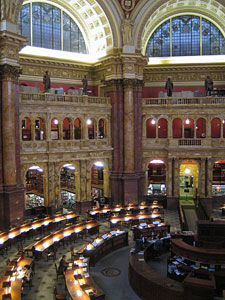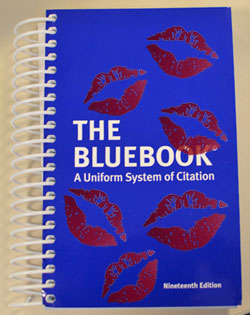 This week, I want to point our readers over to a recent post by Joe Hodnicki at the Law Librarian Blog. Joe notes a letter sent recently to the Librarian of Congress, James H. Billington, requesting that Dr. Billington appoint a Director of the Congressional Research Service (CRS) to assist in the release of unclassified and non-confidential CRS Reports. Among others, the American Association of Law Libraries, Citizens for Responsibility and Ethics in Washington, Free Government Information, Public Citizen and the Sunlight Foundation signed the letter. (A full list appears in the blog post.)
This week, I want to point our readers over to a recent post by Joe Hodnicki at the Law Librarian Blog. Joe notes a letter sent recently to the Librarian of Congress, James H. Billington, requesting that Dr. Billington appoint a Director of the Congressional Research Service (CRS) to assist in the release of unclassified and non-confidential CRS Reports. Among others, the American Association of Law Libraries, Citizens for Responsibility and Ethics in Washington, Free Government Information, Public Citizen and the Sunlight Foundation signed the letter. (A full list appears in the blog post.)
The letter speaks to the accessibility of these valuable public policy (and public domain) documents, which are prepared by the Congressional Research Service for the members and staff of the U.S. Congress. While U.S. taxpayers spend nearly $100 million to fund the CRS, Congress does not disseminate the reports in any systematic way, and no comprehensive list of these reports is even publicly available from which to request reports.
I know it’s not lost on most of you that this is a movie we’ve seen before (or, rather, we see time and time again). It’s time to remove the barriers to access and paywalls we see that surround all public domain legal and government materials.




 Last month, the
Last month, the 

 Have you heard that
Have you heard that